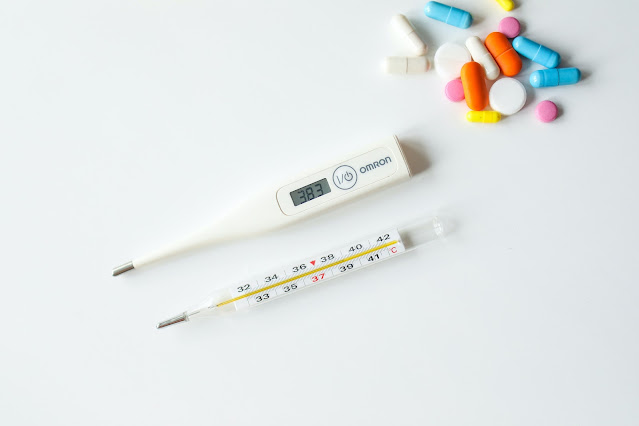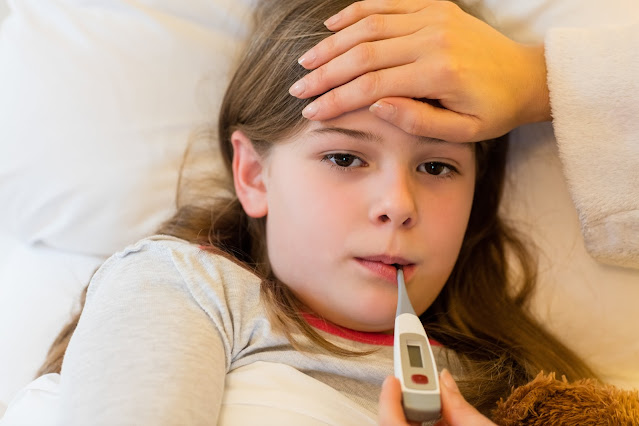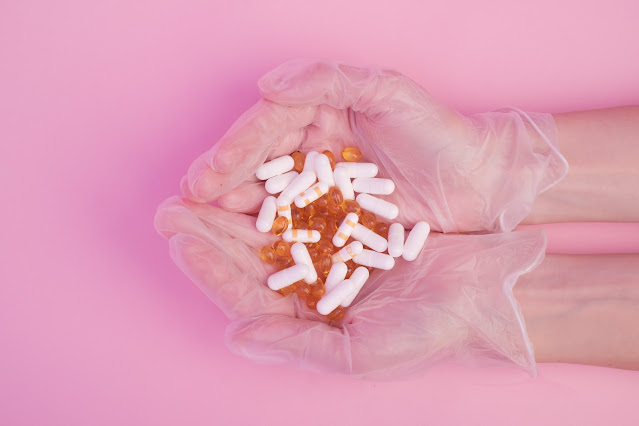A fever is a high body temperature (or sometimes a high fever). It is not a disease to have a fever. Typically, a fever is a sign of an underlying illness, most frequently an infection.
What is a fever?
The temperature of your body varies a little bit during the day. The term "fever" refers to a high body temperature. A fever is typically defined as an increase in body temperature over the typical daily range. The person being measured, the area of the body being measured, and the time of day all affect what is considered normal temperature.
How do you know if you have a fever without a thermometer?
The best approach to determine whether you have a fever is to use a thermometer. Yet even without one, the following will give you a general idea:
- Use the back of your palm to feel your forehead. Compared to the palm, this is far more sensitive to temperature
- Check your reflection. Your cheeks may appear flushed if you have a fever.
- Look for general infection signs such as muscle weakness, fatigue, or aches and pains.
- You may become dehydrated from excessive perspiration if your poop is darker than usual.
Ask everyone nearby if they feel warm; it should go without saying, but if they do, you may need to lower the temperature.
Fever Treatment
Fever in adults
Physical discomfort is typically linked to a high temperature (fever), and most people feel better after receiving medical attention for their fever. You could or might not need medical attention for the fever alone, though, depending on your age, physical health, and the underlying reason for the fever. Many medical professionals agree that fever is the body's natural defense mechanism against infections.
Your physician will examine you and make an effort to ascertain the underlying reason behind your fever. You might be prescribed antibiotics if the cause is a bacterial infection caused by a germ, such as a urinary infection.
You may need to have some tests, especially if a cause other than an infection is likely. Testing may include:
- Blood tests.
- Urine tests.
- X-rays to determine the cause, especially where a cause other than an infection is a possibility.
- Paracetamol or ibuprofen may help to reduce the fever.
Fever in children
Ibuprofen and paracetamol for children are typically only advised if the youngster is distressed due to the fever. Keep in mind that just because a fever goes down with medicine doesn't mean you should stop watching for symptoms of a dangerous illness (such as a non-blanching rash).
It should be noted that providing children ibuprofen or paracetamol does not lessen the likelihood that a seizure brought on by a fever may occur. Take a look at the separate booklet titled Febrile Seizure (Febrile Convulsion).
Children with fevers should no longer be sponged with warm (tepid) water. It's crucial to stay hydrated while you (or your child) have a fever. Maintaining adequate fluid levels is crucial to lowering the chance of dehydration (dehydration).
When should you see a doctor about a fever?
If you or your child has a fever, you should see a doctor immediately.
- Your kid throws a tantrum.
- When you press a glass on a rash that you or your child has, it does not go away (a non-blanching rash).
- You or your child's health is deteriorating.
- Over five days, the fever persists.
If you have a fever and your symptoms, such as a rash, stiff neck, shortness of breath, or chest pains, are getting worse, you should see a doctor.
What causes fever?
Your immune system releases certain molecules that raise your body temperature (fever), usually as a result of an infection or inflammation. A person's fever is a significant indicator that they are ill, and a cause should typically be identified.
The majority of fevers are brought on by diseases or infections. A fever is frequently caused by viral infections. The bacteria or viruses that cause infections have a harder time surviving due to the elevated body temperature.
Home Remedies
If you merely have a yellow tongue, you don't need medical attention. But, you should see a doctor if you have any of the other symptoms listed below:
- A person with a fever needs to be kept at ease and shouldn't be overdressed. The temperature may climb even more if you overdress. Home remedies like sponge baths or tepid water baths can help lower fevers. Never put an individual who has a fever in icy water. This is a typical misunderstanding. Never sponge a child or an adult with alcohol; the fumes could be ingested and lead to a variety of issues.
- Being hydrated is one of the other natural cures for fever. Avoid alcohol and caffeinated beverages, which can contribute to dehydration, and consume lots of water and other fluids. In addition to being refreshing and offering fluids, popsicles can also be used to treat a sore throat if one is present.
- It could be beneficial to use a fan to move the air about or an open window, as well as to place a cool, damp washcloth on the forehead. Make sure the child you are taking care of doesn't feel too cold.



